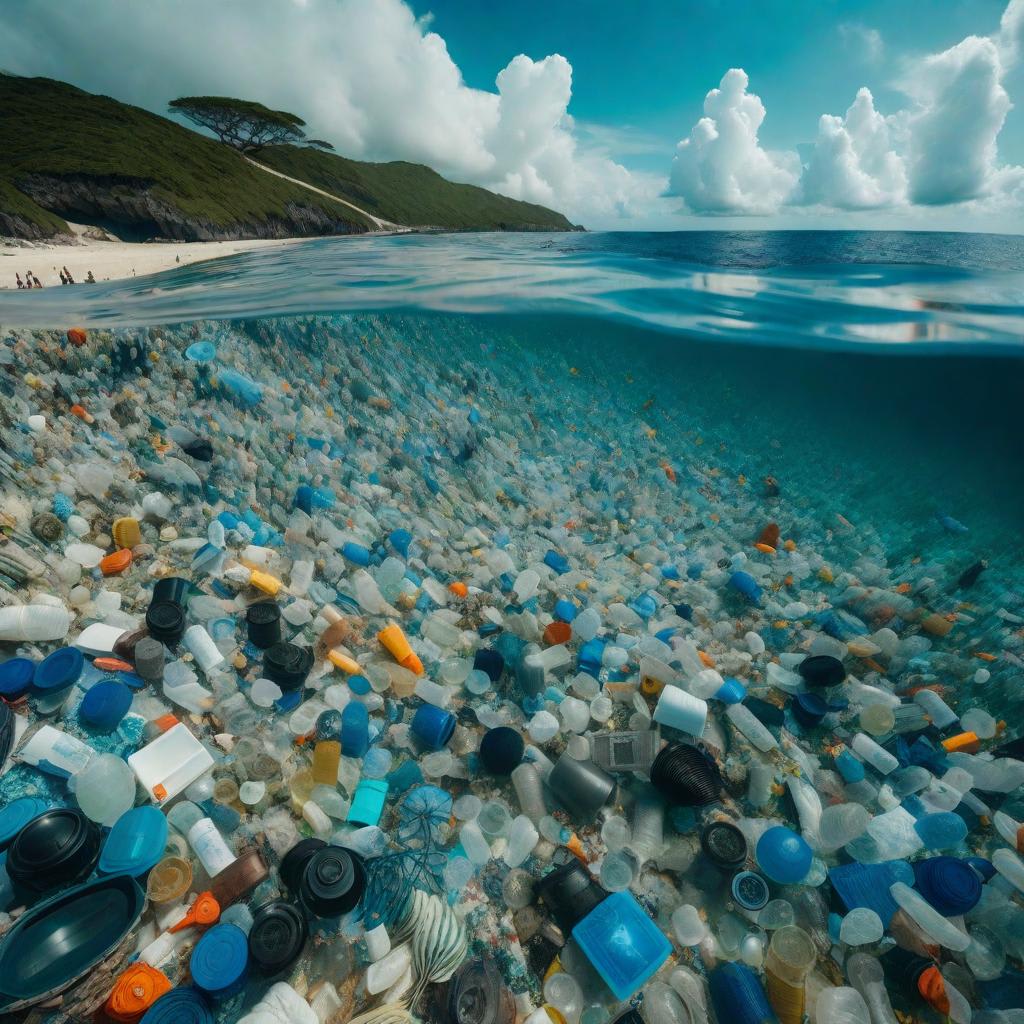ocean plastic pollution
ocean plastic pollution

Marine life is particularly vulnerable to the harmful effects of waste dumping in the ocean. Plastic debris is often mistaken for food by marine organisms, leading to ingestion and entanglement. This can cause suffocation, starvation, and death. Chemical waste can also poison marine species, causing long-term damage to their health and reproductive abilities. The impact of waste dumping is felt across the entire food chain, from fish and shellfish to seabirds, turtles, and marine mammals. The loss of these species can have a devastating impact on the health and stability of entire ecosystems and the people who depend on them.
Disturbed marine ecosystems can have a devastating effect on the delicate balance of life in the ocean. Dumping waste, whether it be plastic, oil, or other pollutants, can cause a ripple effect throughout the food chain. For example, coral reefs are vital habitats for a vast array of marine species, providing shelter, food, and breeding grounds. When these reefs are disrupted, either through direct damage or pollution, the entire ecosystem is impacted. The decline in coral reefs can lead to a decline in fish populations, which in turn affects larger predators such as sharks and whales. Seagrass beds are similarly important habitats, providing food and shelter for many species, including dugongs and turtles. When seagrass beds are disrupted, the entire food web is affected, with devastating consequences for biodiversity and ecosystem resilience. Ultimately, the health of the ocean is intimately linked to the health of these crucial habitats, and it is essential that we take steps to protect them.
Plastic pollution not only poses a threat to marine life but also impacts human health. Contaminated seafood and polluted beaches can have adverse effects on coastal communities and economies, particularly those that rely on the sea for sustenance . In addition to plastic pollution, waste dumping can also lead to waterborne pathogens which can cause human illnesses, affecting drinking water, recreational water, food harvesting, and bathing . Sea level rise, which is a consequence of climate change, poses a range of health impacts on Canadian coastal communities, including increased risk of vector-borne diseases, reduced food and water security, and mental health effects . Indigenous coastal communities in Canada are particularly vulnerable due to systemic inequities and geographic exposure . The socio-economic implications of waste dumping and pollution include negative impacts on the fishing and tourism industries
International regulations and initiatives have been established to address marine pollution and waste dumping. One of the key regulations is the MARPOL Convention , which aims to prevent marine pollution from ships, including the discharge of plastics. The convention has six annexes, including one on the prevention of pollution by garbage from ships. Regional organizations such as the UN Environment Programme and the Cartagena Convention have also been established to combat waste dumping and marine pollution, particularly in Latin America and the Caribbean.
Several countries have implemented effective waste management strategies to reduce marine pollution. For example, Costa Rica has implemented a successful waste management system which includes a tax on single-use plastics, a recycling program, and a ban on Styrofoam The country has seen a significant reduction in plastic waste and has become a leading example for waste management in the region. Another example is the Bahamas, which has implemented a plastic bag ban [2] and has seen a reduction in the amount of plastic waste on its beaches. These successful case studies demonstrate the importance of implementing effective waste management strategies to combat marine pollution.
To end waste dumping, it is crucial to implement solutions at all levels of society. Governments must prioritize the strengthening of waste management infrastructure and support recycling programs. Businesses can promote circular economy practices by reducing packaging waste and using sustainable materials. Individuals can take action by reducing their own waste, properly disposing of hazardous materials, and supporting local recycling programs.
In daily life, you can reduce waste by using reusable bags, bottles, and containers, buying products with less packaging, and composting organic waste. Properly disposing of hazardous materials such as batteries, electronics, and chemicals is also essential to prevent contamination of our oceans and waterways. Additionally, supporting local recycling programs and advocating for policies that prioritize waste reduction and management can make a significant impact in protecting our oceans.





Comments
There are no comments for this story
Be the first to respond and start the conversation.